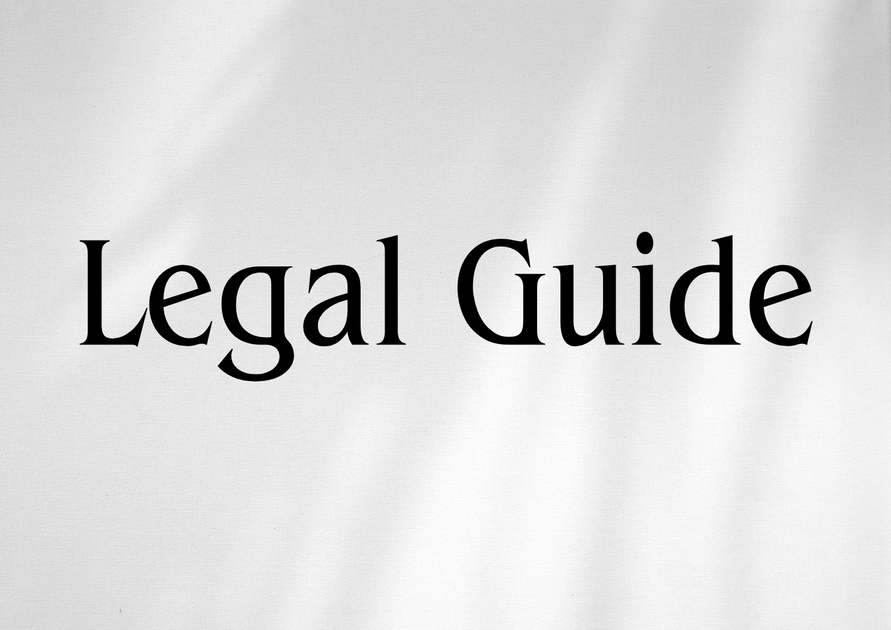Introduction: Understanding Franchise Agreements in a Transforming Legal Landscape
The rapid transformation of legal frameworks across the GCC—and Saudi Arabia in particular—has elevated franchise agreements to a critical area of focus for regional and foreign investors. As Saudi Arabia pursues Vision 2030, the kingdom has enacted and modernized regulations governing franchise operations, aiming to create an attractive commercial environment. Given the close economic ties between the UAE and Saudi Arabia, understanding the kingdom’s franchising regime is essential for UAE-based businesses, investors, and legal practitioners seeking cross-border expansion or risk mitigation. This article provides an advanced legal analysis of franchise agreements and the essential legal protections under Saudi Law, integrating the latest regulatory updates and offering actionable consultancy insights for the UAE business community.
The landscape is especially significant in light of the Saudi Franchise Law (Royal Decree No. M/22 dated 1440H) and its implementing regulations, as well as recent inter-GCC cooperation on commercial harmonization. UAE businesses looking to franchise in Saudi Arabia must navigate not only the statutory requirements, but also practical considerations around disclosure, contractual risk allocation, dispute resolution, and regulatory compliance. This article will guide UAE stakeholders through the nuances of Saudi franchise law, highlight similarities and distinctions in regional approach, and recommend best practices to ensure robust legal protection and business continuity.
Table of Contents
- Overview of Saudi Franchise Law: Key Foundations and Sources
- Key Provisions of the Saudi Franchise Law
- Risk Mitigation and Legal Protections in Franchise Agreements
- Enforcement Mechanisms and Dispute Resolution
- Saudi Arabia vs UAE Franchise Law: A Comparative Analysis
- Case Studies: Navigating Franchise Agreements in Saudi Arabia
- Compliance Strategies and Best Practices for UAE-Based Stakeholders
- Conclusion: Strategic Opportunities and Legal Safeguards
Overview of Saudi Franchise Law: Key Foundations and Sources
The Saudi Franchise Law (“the Law”), promulgated by Royal Decree M/22 of 2019 in line with Cabinet Resolution No. 122, constitutes the kingdom’s first dedicated legislative framework for franchises. The Law is further clarified by Executive Regulations issued by the Ministry of Commerce. Prior to the Law, franchising arrangements were governed only by general principles of contract, agency, and intellectual property law. Formalizing franchising through distinct legislation aligns Saudi Arabia’s legal infrastructure with international best practices and increases investor confidence.
The Saudi Franchise Law regulates the grant, operation, and termination of franchise agreements, setting minimum standards on pre-contractual disclosure, agreement terms, dispute resolution, and enforcement. Its principal aims include:
- Protecting franchisees—who are often less sophisticated and at a structural disadvantage—by requiring transparent disclosures and minimum protections;
- Ensuring franchisors provide accurate information regarding their business, risks, and financial status;
- Reducing disputes arising from information asymmetry, inadequate documentation, or lopsided contractual arrangements.
Official Sources: Saudi Franchise Law (Royal Decree No. M/22, 1440H); Implementing Regulations (Ministerial Resolution No. 00591, 1441H); Ministry of Commerce (KSA).
Key Provisions of the Saudi Franchise Law
Definition and Scope of Franchise
Under Article 1 of the Law, a franchise is defined as a contractual relationship where one party (the franchisor) grants another (the franchisee) the right to conduct a business using its trademark and know-how, in exchange for consideration. The Law applies equally to domestic and international franchises operating in Saudi Arabia, whether relating to goods or services.
Mandatory Disclosure Obligations
To address the inherent power imbalance in franchise relationships, the Law mandates comprehensive pre-contractual disclosure. Key requirements include:
- Disclosure Document: The franchisor must provide the franchisee with a disclosure document—including business history, financial statements, litigation history, trademark status, territorial restrictions, and details of other franchised outlets—at least 14 days before signing the agreement (Article 6).
- Updates: Any changes to the information provided must be disclosed promptly.
- Liability: Failure to provide or update accurate disclosure renders the franchisor liable for damages and may ground contract rescission by the franchisee.
These disclosure requirements promote transparency and allow franchisees to conduct effective due diligence before committing to substantial investment.
Essential Contractual Requirements
The Law sets out mandatory contractual terms (Article 7), stipulating that a franchise agreement must:
- Specify the rights and obligations of both parties;
- Detail payment methods, calculation of fees, and royalty structures;
- Define the franchise territory, duration (minimum five years unless otherwise agreed), renewal and termination procedures;
- Provide mechanisms for transfer, assignment, and succession of rights;
- Outline intellectual property protection and the use of trademarks, patents, and confidential information;
- Cover conditions for training, quality control, and support by the franchisor.
This structured approach ensures a greater degree of certainty and reduces the risk of disputes and “forced” termination, historically frequent in the region.
Franchise Registration and Record-Keeping
Both franchisors and franchisees are required to register the franchise agreement with the Ministry of Commerce in Saudi Arabia (Article 9). Registration is a precondition for the enforceability of contractual rights, and non-compliance can affect the parties’ ability to assert claims in Saudi courts. The Law also requires the maintenance of updated records and documents supporting ongoing franchise operations.
Risk Mitigation and Legal Protections in Franchise Agreements
The imperative for risk mitigation—whether through contractual safeguards or strict regulatory compliance—cannot be overstated in franchise operations. UAE-based franchisors and investors must pay special attention to the following legal protections under the Law:
- Misrepresentation and False Promises: The Law imposes explicit liability for any material misrepresentation or omission in the disclosure document.
- Right to Terminate: Franchisees may terminate the agreement early in certain circumstances (e.g., fraudulent disclosure, breach of contractual obligations, or change of control), with statutory remedies for damages.
- Transfer and Succession Rights: The Law details the conditions under which franchisees or their heirs may transfer franchise rights, reducing the risk of loss on death or insolvency.
- Non-Competition and Exclusivity: While protectable, any non-compete clauses must be reasonable in scope and duration, failing which they may be unenforceable under Saudi judicial practice.
- Intellectual Property (IP) Enforcement: The Law dovetails with Saudi intellectual property statutes. Agreements must clearly address IP registration, use, and protection—especially relevant for UAE brands entering the Saudi market.
Suggestion for Visual: A flowchart outlining the franchise agreement registration process in Saudi Arabia, highlighting key steps and timelines.
Enforcement Mechanisms and Dispute Resolution
Dispute resolution is a central concern for franchisees and franchisors alike. The Law provides that parties may agree on preferred mechanisms—such as mediation, local arbitration, or litigation before Saudi courts—provided that certain matters (e.g., trademark validity) remain subject to Saudi jurisdiction. The Law also strengthens judicial discretion to invalidate clauses found to be unconscionable or contrary to public policy, a protection consistent with Sharia principles and international best practice.
Penalties for Non-Compliance
| Violation | Penalty/Remedy |
|---|---|
| Failure to Provide Disclosure | Rescission by franchisee, damages, potential debarment |
| Unregistered Franchise Agreement | Inadmissibility of claims, contractual unenforceability |
| IP Infringement | Injunction, damages, criminal liability under separate statutes |
It is crucial for UAE businesses to audit existing franchise operations in Saudi Arabia for compliance, update contractual arrangements, and ensure that dispute resolution clauses are enforceable and aligned with Saudi law.
Saudi Arabia vs UAE Franchise Law: A Comparative Analysis
While the United Arab Emirates has not yet enacted a standalone federal franchise law akin to Saudi Arabia’s, franchises in the UAE are primarily governed by contract principles, the UAE Commercial Agencies Law (Federal Law No. 3 of 2022), and sector-specific regulations. The following table summarizes key differences and similarities:
| Aspect | Saudi Arabia (Franchise Law M/22) | UAE (Commercial Agencies Law No. 3/2022 & Civil Code) |
|---|---|---|
| Definition of Franchise | Explicitly defined in law | No dedicated definition; closest analogy: agency and distributorship |
| Mandatory Disclosure | Extensive statutory disclosure requirements | No statutory disclosure; recommended by best practice |
| Agreement Registration | Mandatory with Ministry of Commerce | Mandatory registration for commercial agencies only |
| Duration & Termination | Minimum five years (default); clear termination grounds | No minimum term, absent party agreement |
| IP Protection | Integrated into franchise law obligations | Protected under Trademarks Law; not franchise-specific |
| Dispute Resolution | Local dispute resolution prioritized; parties may agree to arbitration | Litigation or arbitration per contract; agencies subject to Commercial Agencies Committee |
Suggestion for Visual: A comparison chart (as above), or an infographic showing procedural differences for franchise establishment in the UAE and Saudi Arabia.
Case Studies: Navigating Franchise Agreements in Saudi Arabia
Case Study 1: UAE F&B Brand Expanding to Riyadh
A leading UAE-based restaurant chain intends to grant a master franchise in Riyadh. The franchisor prepares a detailed disclosure document and ensures it is delivered to the prospective franchisee 14 days in advance. The agreement includes robust IP protection clauses, clear fee structures, and a dispute resolution clause referring disputes to the Saudi Center for Commercial Arbitration. The franchisor registers the franchise with the Saudi Ministry of Commerce. Six months later, the franchisee seeks to terminate the agreement, alleging undisclosed material litigation against the brand in another jurisdiction. Owing to the Law’s strict disclosure rules, the franchisee successfully invokes rescission and damages—prompting the franchisor to revise its compliance procedures for future franchisees.
Case Study 2: Non-Compliance Risks for Technology Franchise
An Emirati technology company enters the Saudi market via franchising, but fails to register the franchise agreement with Saudi authorities. When contractual disputes arise concerning royalty payments, the UAE franchisor finds itself unable to assert its legal rights in Saudi courts, leading to loss of royalties and reputational risk. This example underscores the practical importance of formal registration and proactive compliance audits prior to entry.
Compliance Strategies and Best Practices for UAE-Based Stakeholders
Given the complexities of cross-border franchising and the evolving regulatory climate, UAE-based businesses and legal practitioners are advised to:
- Conduct Legal Due Diligence: Gather and verify business and IP histories, financial statements, and prior dispute data before franchise negotiation.
- Prepare Detailed Disclosure Materials: Align documentation with Saudi requirements—including translation and authentication—well in advance.
- Customize Franchise Agreements: Adapt standard agreements to reflect mandatory Saudi provisions, local market conditions, and dispute resolution requirements.
- Register Promptly: Complete registration with the Ministry of Commerce prior to commencement of business.
- Implement Ongoing Compliance Audits: Periodically review operations for ongoing compliance with the Law and update contractual documentation as needed.
- Engage Local Counsel: Collaborate with Saudi legal experts to monitor legal updates and resolve arising disputes efficiently.
- Incorporate Robust Termination & Succession Clauses: Structure agreements to allow for flexibility and continuity under diverse circumstances.
- Coordinate with UAE Authorities: Ensure continued compliance with UAE laws where contractual arrangements span both jurisdictions.
Suggestion for Visual: A checklist infographic summarizing franchise compliance steps for UAE businesses in Saudi Arabia.
Conclusion: Strategic Opportunities and Legal Safeguards
The franchising landscape in Saudi Arabia has entered a new era of transparency, enforceability, and investor protection. For UAE-based businesses, legal practitioners, and consultants, the Saudi Franchise Law and its implementing regulations present both challenges and opportunities. Adopting a compliance-first approach—grounded in statutory disclosure, robust contractual terms, and proactive risk mitigation—serves not only to protect the parties’ interests but also to cement a reputation for ethical business conduct in the Gulf’s most dynamic market. As regulatory cooperation across the GCC continues to deepen, businesses that invest in cross-border legal expertise will be best positioned to serve regional markets and navigate further regulatory reforms in 2025 and beyond.
UAE stakeholders are strongly advised to remain agile, seek regular updates from official sources such as the UAE Ministry of Justice, Ministry of Human Resources and Emiratisation, and the UAE Government Portal, and engage expert counsel when contemplating franchise expansion into Saudi Arabia.
To discuss your franchise compliance needs in the UAE or Saudi Arabia, or to schedule a risk review with our legal team, please contact our specialist commercial law advisors today.




